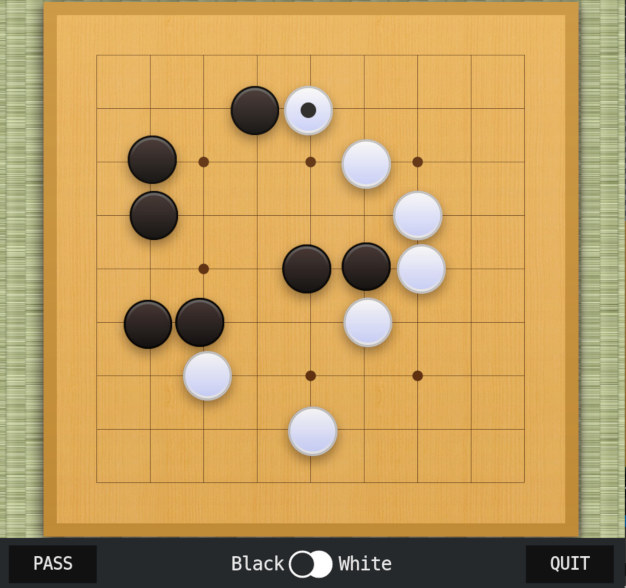🐛 Play Go against your friends, over the web! 🕸
🤖 Or play against KataGo AI on a power-efficient dev board! 🤖
Want to play right now? Click here: go.terkwood.farm
- Allows play against AI using KataGo, running on an NVIDIA Jetson Nano and consuming a mere 5W of power.
- Backend powered by Redis.
- Uses a descendant of Sabaki for the web UI.
- A public-facing websocket gateway communicates with the browser.
BUGOUT is not suitable for playing KataGo on your workstation.
The production version of BUGOUT relies on an instance of KataGo hosted on an NVIDIA Jetson Nano, compiled with ARM architecture. KataGo is spawned by the tinybrain process.
These services run in my home, and connect remotely to an AWS-hosted instance serving the rest of the system. This requires a websocket connection, and a valid SSL certificate.
...then we suggest trying out KaTrain, which works flawlessly. It has a lovely UI, it will download and set up KataGo for you, and it will save your valuable time.
Mainly because we designed this system with the goal of being playable over the web. For this purpose, it functions well enough.
In our context, the build of KataGo itself probably isn't reproducible. At least, getting it set up to run in the current production system was a bit of a pain point.
If so, don't say we didn't warn you!
BUGOUT uses docker to host multiple images, including a reverse-proxy for web traffic, and a redis instance. You need to create directory which will be used for volume mounting these instances. Inside the reverse-proxy directory, you'll need a Caddyfile, which this script will also create:
sh admin/setup-local-dev.shBUGOUT relies on docker-compose to run most of its services. It will invoke some buildkit-related options, so please use the included script to start the system.
sh compose.sh upIf you're hacking BUGOUT, you will want to host the web application on your local machine. You need to install npm. Then:
cd browser
npm install
npm run build
npm run startThe tinybrain utility currently does not use docker-compose. This utility wraps KataGo AI and allows it to communicate with the rest of the backend services. We run it using a systemd script.
We have some poorly written notes about building KataGo, but they are specific to NVIDIA Jetson Nano + ARM. You're on your own if you want to get everything hooked up via x86_64.

